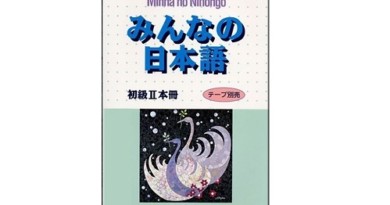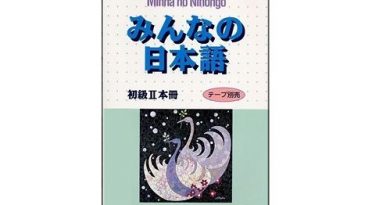Learn minna no nihongo lesson 35
6. Mondai
To do the “Mondai” section, you need “minna no nihongo” book and audios for listening
Exercise 1: Listen and answer questions
With this exercise, first you need to listen to the question and write down what you have listened and then answer the question according to your own understanding. You should not try to focus on clearly listening to each word of a sentence then missing the following sentences. You should listen it for the first time, answer the questions one by one, with the questions you can’t listen then listening to them the second time. After that, you can listen again and copy the words to improve your listening skill and remember words better. Finally, after listening and answering all questions, you can refer to the translation and the answer below.
Translation :
1. どうすれば,漢字が覚えられますか。
dou sure ba , kanji ga oboerare masu ka.
What should I do to remember Kanji?
2. 安ければ、車を買いますか。
yasukere ba, kuruma wo kai masu ka.
Will you buy a car if it is cheap?
3. 初めて人に会ったとき、何と言えばいいですか。
hajimete hito ni atta toki, nani to ie ba ii desu ka.
What should I say when I first met a person?
4. パソコンを買いたいんですが、どこのがいいですか。
pasokon wo kai tai n desu ga, doko no ga ii desu ka.
I want to buy a computer, where should I buy?
Answer :
1. 何回も 書ければ、覚えられます。
nankai mo kakereba, oboeraremasu.
If you write many times, you can remember it.
2. いいえ、安くても、買いません
Iie, yasukutemo, kaimasen
No, even if it is cheap, I won’t buy it.
3. 「はじめまして」と 言えば いいです。
“Hajimemashite” to ieba iidesu.
You should say Hajimemashite.
4. パソコンなら、パワー電気のが いいです。
Pasonkon nara, pawa- denki no ga iidesu.
If it’s a computer, Power electricity company is a good place.
Exercise 2: Listen and choose true or false
With this exercise, the listeners will listen to the conversation, then there will be a key point about the problem that will be raised in the conversation. The listeners must choose whether the content is true or false according to what they has listened. If it is true, select 〇 (maru) and if it is false, choose ✖ (batsu). In this listening section, you should pay attention to the concluding sentence to see whether that sentence is given in a positive or negative form in order to avoid being “tricked” when listening.
1.
男: すもう の チケットを 買いたいんですが、どうすれば いいですか。
I want to buy a sumo wrestling ticket, what should I do?
女:すもうの ことなら、山田さんが よく 知って いますから、 山田さんに 聞いてください。
If it is sumo, Mr. Yamada knows well about it, so please ask Mr. Yamada.
★ 田中さんに 聞けば、すもう の チケットの 買い方が わかります。
★ If you ask Mr. Tanaka, you can know how to buy a sumo wrestling ticket
Answer:(〇)
2.
女: どうしたんですか
What happened?
男:タクシーに かばんを 忘れたんです。困ったな。
I forgot my bag on the taxi. I’m in trouble.
女:タクシーの会社に 電話すれば、すぐ わかると 思いますよ。
If you call the taxi company, I think you will know soon.
男:うーん、タクシー会社の 名前を 覚えて いないんです。
Hmm, I don’t remember the name of the taxi company.
★ 男の人は すぐ タクシーの 会社に 電話を かけます。
★ The man will immediately call the taxi company
Answer:(✖)
3.
男: ここは いいところ です。雪の景色も いいし、おんせんも あるし。
This place is beautiful. The scenery of the snow is good and there is also a hot spring
女: ええ、冬も いいですが、春になれば、桜が 咲いて、もっと きれいですよ。
Yes, it is also beautiful in the winter, but when spring comes, the cherry blossoms are blooming so it is more beautiful.
男:じゃ、春に もう一度 来たいですね。
Well, I want to come back again in spring.
★ ここは 冬より 春がいい です。
★ This place is more beautiful in spring than winter.
Answer(〇)
4.
男:肉料理 と 魚料理と どちらが いいですか。
Which is better, meat dish or fish dish?
女:そうですね、魚が いいですね。
Well, the fish is good.
男:魚なら、ワインは 白が いいですね。
If it is fish, it’s good with white wine.
女:ええ、白ワイン を お願いします。
Yes, white wine, please.
★ 女の人は 白ワインを 飲みながら、魚料理を 食べます。
★ The woman will eat fish dish while drinking some white wine.
Answer:(〇)
5.
男: このうちは ちょっと 駅から 遠いね。
This house is a bit far from the station
女: これで 安いですね
That’s why it is cheap.
男: そうですね。家賃は 駅に 近ければ 近いほど 高くなるからね。
That’s right. The closer the house is, the higher the rent is.
★ この うちは 駅から 遠いですから、やすいです。
★ Because this house is far from the station, it is cheap.
Answer(〇)
Exercise 3: Choose the right word
In order to do this exercise, you need to review the grammar as well as the vocabulary you have learned so that you can understand the general content of the sentence, then you can choose the right word.
1. 来週に( )桜が 咲くと おもいます
2.( )、次の 電車に 間に合います。
3. この仕事は 経験が( )できません。
4. この 洗濯機は ふたを ( )動きません。
Exercise 4: Choose the right word and give the true form of it
This exercise helps you review the grammar structure: V/ Adj (conditional form) + V/Adj (dictionary form) + ほど ~ . To be able to remember longer, before doing, you should review this grammar structure as well as the vocabulary you have learned in the lesson.
Example : 頭は ( 使えば )( 使い )ほど よく なります。
The more you use your head, the better you become.
The words : 勉強します 新しいです 早いです
1. 日本語は( )( )ほど おもしろく なります
2. 電車は 朝( )( )ほど すいています。
3. 魚は( 新しければ )( 新しい )ほど おいしいです。
4. きょうは ( 残業しなければなりません・残業しなければならない・残業しなければならなくて )かも しれません。
Exercise 5: Read the following paragraph and answer the questions
(1) いい友達 を 選ばなければ なりません。
(2) 悪い友達も、 いい友達も 必要だ
Translation and Answer
Shu ni majiwareba akaku naru (A rotten apple spoils the barrel)
This is a proverb.
When pouring the red wine into the white wine, the wine will turn into red wine. It is the same as people, if you get along with good friends, you will become a good person and if you get along with bad friends, you will do bad things. So this sentence means that you shouldn’t get along with bad friends.
Question:
1. You have to choose a good friend(〇)
2. You need both good friends and bad friends(✖)
Above is instruction to Learn minna no nihongo lesson 35. See other lessons in category : learn Japanese with minna no nihongo or: Japanese for beginers.

